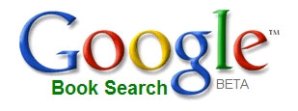 At this week’s Frankfurt Book Fair, Internet giant Google announced that it plans to go up against the likes of Amazon, Sony, and Barnes & Noble in the ebook market, launching its own ebook store called Google Editions in the first half of 2010. But rather than target a specific ereader device—like Amazon does with its popular Kindle—Google will instead target any device with a Web browser, whether it be a PC, a mobile phone, a portable media player, or even an electronic reader.
At this week’s Frankfurt Book Fair, Internet giant Google announced that it plans to go up against the likes of Amazon, Sony, and Barnes & Noble in the ebook market, launching its own ebook store called Google Editions in the first half of 2010. But rather than target a specific ereader device—like Amazon does with its popular Kindle—Google will instead target any device with a Web browser, whether it be a PC, a mobile phone, a portable media player, or even an electronic reader.
Google Editions will initially offer about half a million titles, in conjunction with publishers with whom Google already has established partnerships. Customers will be able to buy ebooks from Google directly—in which case Google plans to keep 37 percent of the sale and pass 63 percent along to the publisher. Google will also partner with other ebook retailers, who will be able to sell titles from Google: in those cases, the retailer would get about half the money, the publisher about 45 percent, and Google would keep the remainder.
Google Editions will mark the first time Google has attempted to monetize its digital book efforts directly. Industry watchers had expected Google to try to leverage money out of its books business through behavioral and display advertising rather than direct sales, and its not clear whether direct sales will be a particularly lucrative channel for Google, or whether the move simply represents one component of a broader monetization strategy.
Google intends for users to be able to access their purchased digital books through any platform supporting a reasonably modern Web browser, including mobile phones, PCs, netbooks, and portable Internet-capable devices. Google Editions will apparently use Google Checkout—the company’s nascent online payment system that set out to challenge PayPal.
Google said it does not have any plans to develop its own e-reader hardware.
Editors' Recommendations
- How to change theme colors in Google Slides
- How to delete a file from Google Drive on desktop and mobile
- The best web browsers for 2024
- 5 web browsers you should use instead of Google Chrome or Edge
- How to do hanging indent on Google Docs


